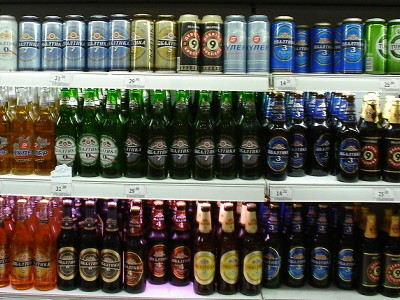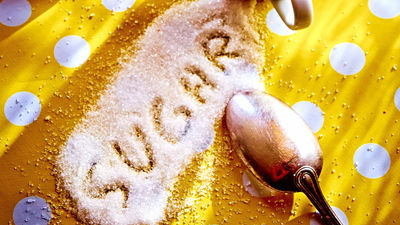Assertion that 'tax to be drunk should be raised in order to tackle obesity becoming social problem'

Obesity, which also causes diabetes, hypertension, sleep apnea syndrome, etc., is now one of the major health problems in the world. According to the Australian government , about 30% of Australian adults are obese, and 1 in 4 children are obese, and in Australia people's obesity is argued as a serious social problem. Meanwhile, The Conversation introduces the claim that "you can raise liquor tax to solve the obesity problem in Australia".
Assessing Cost-effectiveness of Obesity Prevention Policies in Australia - ACE-OBESITY POLICY 2018
http://www.aceobesitypolicy.com.au/
What's the most value for money way to tackle obesity? Increase taxes on alcohol
https://theconversation.com/whats-the-most-value-for-money-way-to-tackle-obesity-increase-taxes-on-alcohol-108335
According to statistics from 2016 to 2017, a total of 186 million liters of alcohol was consumed in Australia. It is calculated that it is drinking 9 liters per Australian over 15 years old. The research team at Deakin University argued that it can solve the problem of obesity in Australia by taking a policy aimed at reducing alcohol consumption.

According to a survey by the World Health Organization (WHO) (PDF file) , more people with alcohol intake tend to ask for cheaper sake. In addition, the research team introduces studies showing that consumption prices are higher as alcohol prices are lower.
From the above, the research team argues that raising taxes on alcohol is the most cost-effective way to reduce alcohol consumption. In fact, in the survey in the United States, it seems that there is also a result that excessive drinking exceeding the level of alcohol poisoning decreased by 1.4% if alcohol price rises by 1% by taxation.
However, the research team points out that Australia's liquor tax is currently complicated and irrational. In Australia, tax is applied according to the alcohol concentration and production amount at the wholesale stage. Also, 29% tax is imposed on the wine, one of Australia's main industries, called Wine Equiliaztion Tax (wine equalization tax). According to the conventional tax system, beer with a high alcohol content but low in alcohol content has the lowest liquor tax, while the spirits with relatively high carbohydrates are higher than the current situation.

The research team is seeking a drastic review of liquor taxation system. When applying the tax system proposed by the research team, it seems that 120% of box wines, 33% of bottled wines, 25 - 30% of beer and 4.6% of spirits will be raised. By changing the taxation system, it will be possible to reduce Australia's overall alcohol consumption by 16%, the average weight of the people will be reduced by approximately 0.7 kg, and if the health life expectancy of more than 470,000 Australians extends, the research team I am arguing. In addition, because increased tax revenues can be spent on diabetes and cancer medical care, it is said that the health impacts are quite large.
In addition, research teams argue that savings of 4.8 billion Australian dollars (about 390 billion yen) can be saved by preventing diseases derived from obesity. The research team says, "Although it is highly possible that sake rise in alcohol is likely to buy criticism of the public, if the government is working on an effective obesity strategy, raising liquor taxes is considered as part of a comprehensive social response It should be done. "
Related Posts:
in Junk Food, Posted by log1i_yk







